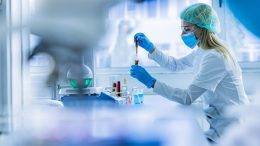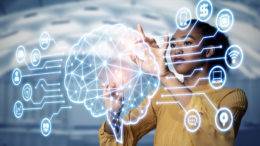In light of the proliferation of data, the necessity to study and analyze information to attain insights increases day by day. As a result of this, data science is essential to businesses since it helps individuals make decisions and solve problems.
As technology develops, we create more and more data, rendering conventional business intelligence outdated. Machine learning and sophisticated analytics are the only ways to gain insights from data sets instead of traditional methods. The Internet has changed everyone’s daily lives, so has this technology. Data Science and artificial intelligence are ready to transform our unimaginable lives.
What are the Benefits of Data Science for Businesses?
Data science is becoming increasingly significant in the commercial sector. Although it is a relatively new business, comprehending its current relevance is becoming increasingly crucial. Data collection, storage, analysis, and interpretation are essential aspects of Data Science. Health care, business, social media marketing, and sports betting are just a few of the areas where it may be used.
Data Science is widely accepted. With Big Data being incorporated in practically every aspect of our lives now and shortly, no business organization can afford to overlook the value of data science. There’s a reasonable risk they’ll fall behind their competitors if they do. Smaller businesses with robust data handling abilities will win over larger companies with insufficient data understanding and expertise.
Even start-ups aren’t passing up the opportunity to make data-driven judgments. The corporate sector has grasped the significance of data science in the current situation. Assume that this massive data set can be reviewed and computed using a scientific method. It may assist firms in reaching relevant conclusions, resulting in improved business decisions, more earnings, and a higher return on investment.
What exactly does a Data Scientist perform for a company?
Data collecting and analysis from numerous sources has decreased the need to take high-stakes bets since the introduction of data scientists.
Data scientists use current data to construct models that mimic many potential actions, allowing businesses to determine which path would yield the most significant outcomes.
Measuring and measuring essential metrics associated with critical developments pays reward.
Most businesses collect consumer data from at least one source, whether Google Analytics or customer surveys. Data science’s capacity to connect current data, which may not be relevant on its own, with other data points to develop insights that a company can use to learn more about its audience and consumers is a vital component. A data scientist can accurately identify the main groups by examining diverse data sources. Tailoring services and goods may increase profit margins to specific consumer groups.
Data science may assist any company capable of efficiently exploiting its data.
Any firm in any field may benefit from data science.
It’s relevant across the board and will define the future of enterprises, from assessing processes and employing new employees to assisting senior staff in making better-informed decisions.
Despite being one of the fastest-growing disciplines for new graduates, demand for data science significantly outnumbers supply. Furthermore, business intelligence professionals and analysts are being investigated to democratize data science access and speed up recruiting through the solution. A certification in Clinical Data Science can speed your career growth.






